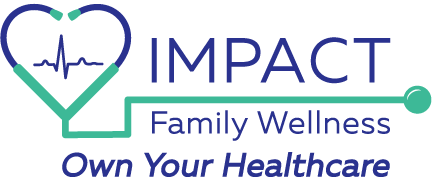Importance of Breastfeeding
August marks National Breastfeeding Awareness Month. Its purpose is to create awareness among those breastfeeding and those around breastfeeding mothers. Feeding infants breastmilk guarantees a food source uniquely adapted to their nutrient needs. At the same time being safe, clean, healthy, and accessible, no matter where they live.
Globally, 48 % of newborns are breastfed within an hour of birth, leaving 52% of newborns waiting too long for this critical contact with their mothers. While everyone has the right to make their own decisions, breastfeeding is recommended by the World Health Organization (WHO) until a child turns two.
Breast Milk Consumption
A woman’s body prepares to feed its child as soon as she gets pregnant, and when a child is born, it’s ready by producing the first milk called Colostrum. It’s usually thick and yellow, with nutrients, antibodies, and antioxidants. That is why the first 1 hour after birth is critical for the infants' survival.
After that, the body produces milk until the infant is weaned off the breast. The main components of breast milk include sugar-lactose, lipids or fats, proteins, and carbohydrates such as human milk oligosaccharides or HMOs.
Breastfeeding is often recommended for mothers as these components largely support a growing baby's nutrition and provide antibodies against viral and bacterial germs. For example, HMOs are thought to play an essential role in the developing gut microbiome.
Breast milk contains Docosahexaenoic acid (DHA), an omega-3 fatty acid that helps develop the baby’s brain. As per the National Library of Medicine, DHA intake may contribute to optimal conditions for brain development.
Benefits of Breastfeeding to Infants and Babies
- Breast Milk is the ideal food for infants. It is safe, clean, and contains antibodies that help protect against many common childhood illnesses.
- Babies breastfed exclusively for the first six months of their lives are less likely to be stricken by several ailments such as ear and throat infections, colds, diarrhea, and gastroenteritis.
- Breastfed children perform better on intelligence tests, are less likely to be overweight or obese, and are less prone to diabetes later in life. Women who breastfeed also have a reduced risk of breast and ovarian cancers.
- In the months after birth, babies will wake up during the night for milk. Unlike formula-fed babies, those who have breastfed will return to sleep sooner. This is because the oxytocin produced by the baby’s body during breastfeeding is sleep-inducing.
- Research shows that children who breastfed as babies are at a lower risk of suffering from strains of cancer such as leukemia and lymphoma. They are also at lower risk of becoming obese or developing type 1 or 2 diabetes as adults.
- Feeding a baby with breast milk decreases the risk of sudden infant death syndrome (SIDS). A study published in March 2009 by the American Academy of Pediatrics showed that breastfeeding reduced deaths due to SIDS by approximately 50%.
Benefits of Breastfeeding to the Mother
While breastfeeding provides numerous benefits to the infant, it is also favorable for the mother.
- Oxytocin, a hormone released during breastfeeding, can aid in postpartum healing by reducing postpartum blood loss and helping return the uterus to its size.
- Research from the American Academy of Pediatrics suggests breastfeeding may reduce a mother’s risk for Type 2 diabetes and cardiovascular disease and can reduce the incidence of ovarian and breast cancer.
- Breastfeeding can elicit emotional or psychological benefits for mother and child. For example, it triggers the release of the hormone prolactin and oxytocin in the mother, which promotes a sense of nurturing and attachment. This chemical release aids in developing an emotional bond with one’s baby and reduces the chances of postpartum depression.
- A recent study found that women who breastfed their children for long periods exhibited more maternal sensitivity, or a mother's responsiveness to their child, than mothers who cut breastfeeding short.
- In infant psychological development, skin-to-skin contact during breastfeeding can have long-lasting for mental and behavioral health. For example, breastfed babies are more likely to have better memory, early language, and enhanced motor skills.
- Weight loss - For the first three months after delivery, breastfeeding mothers may lose less weight than women who don’t breastfeed.
In conclusion, it is entirely ok if mothers do not breastfeed for one reason or another. Feeding babies with formula still provides babies with all the nutrients they need.










